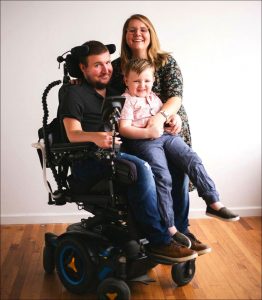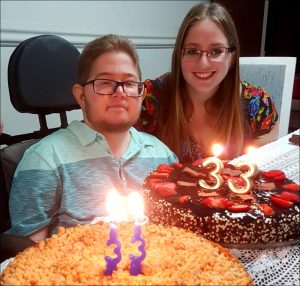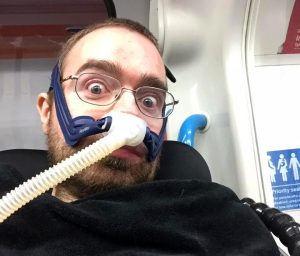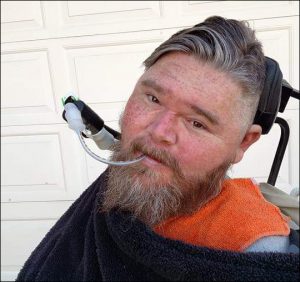Defying the Odds of Living with Duchenne, Decade After Decade
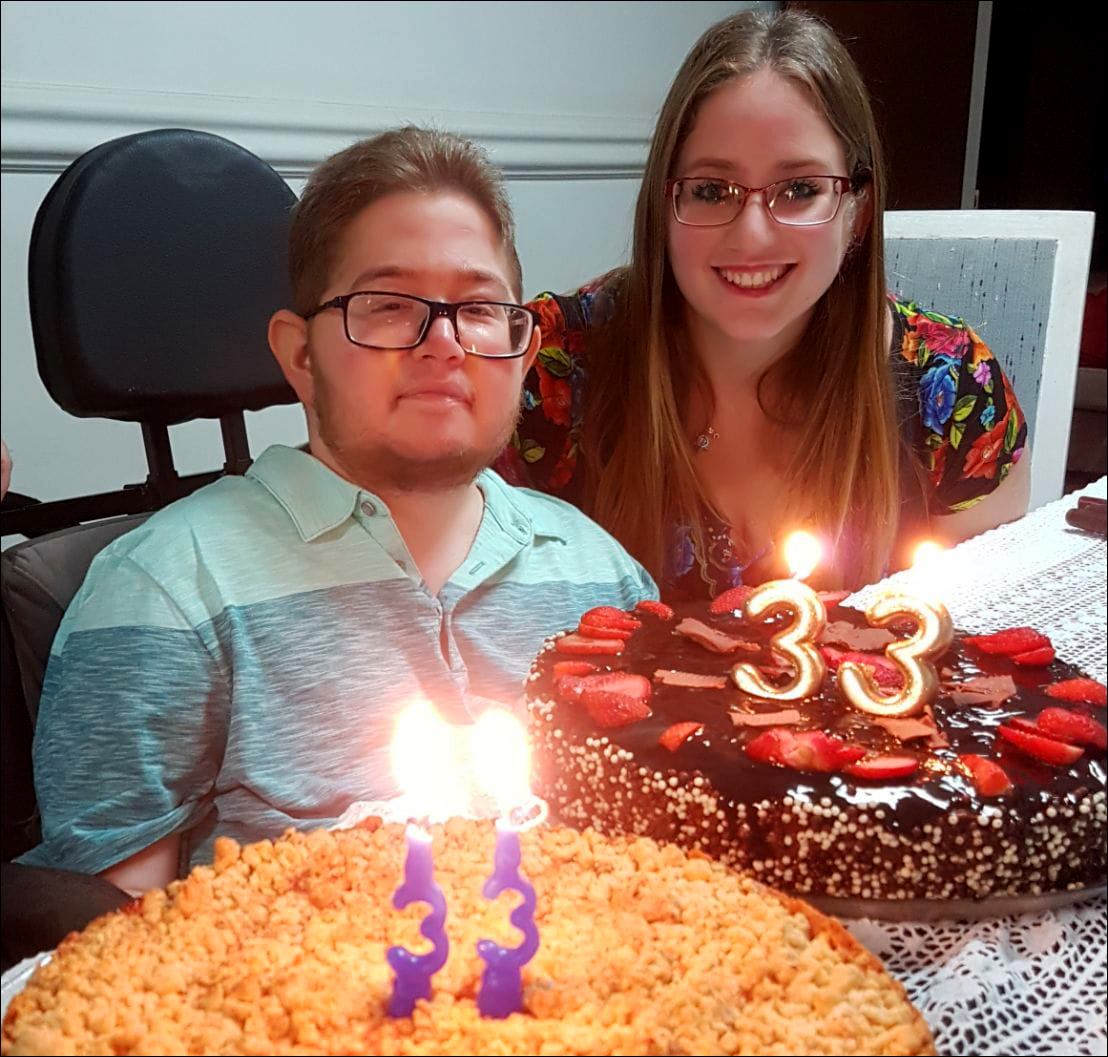
Leonardo Feder and his twin sister, Clarissa, celebrate their 33rd birthday in São Paulo, Brazil. (Photo courtesy of Leonardo Feder)
When it comes to Duchenne muscular dystrophy (DMD), Leonardo Feder knows he’s among the lucky ones.
A resident of São Paulo, Brazil’s largest city, Feder was diagnosed with Duchenne at age 6 and immediately began taking corticosteroids as well as heart medicine and supplements.
“I’ve been well-medicated all my life, so I’m fine,” the 33-year-old said in a phone interview. “I’m in good health.”
It also helps that both his parents, David Feder and Ana Lucia Langer, are doctors.
“When I was diagnosed with Duchenne, there wasn’t much information about the disease, so they decided to research it by themselves,” he said. “My father is a pulmonologist and general clinician. And my mother, originally a pediatrician, now only treats neuromuscular diseases.”
Feder was diagnosed with a nonsense mutation in exon 41. He began using a wheelchair when he was 15 and stopped walking at 20. But that didn’t prevent him from graduating in 2007 with a degree in journalism, or earning his master’s degree in 2013. He then started his doctoral thesis in philosophy — “Tracking Jewish eyes: The works of five German photographers in exile in Brazil” — and finished last year.
The Muscular Atrophy News forums are a place to connect with other patients, share tips and talk about the latest research. Check them out today!
“I have Facebook contacts with many Duchenne patients who are more than 40 years old, some even close to 50,” he said. “It’s more normal with today’s medicine and treatments.”
A spiritual connection
Like Feder, Texas native Matthew Martin is also 33 years old. The Dallas resident lived with his parents until he was 26, when he married his wife, Amber. Together, they have a 5-year-old son, Jasper, with another boy due mid-April.
Martin was diagnosed with Duchenne when he was 8, due to deletions of exons 46 through 50.
“I lost the ability to walk sometime around age 13,” he wrote in an email. “I recall standing for the last time on Dec. 14, 1999. That’s the morning I had spinal fusion surgery.”
Martin works for a meat distributor owned by his in-laws, answering email inquiries about the company’s products and designing its website. He takes a beta-blocker, and a blood pressure medication.
Martin has never taken steroids, and said he doesn’t believe they “benefit those with DMD in the long run.”
“I’d say the most difficult thing about DMD is having to rely on others for every daily task,” he added. “Constantly losing abilities is tough as well. But my longevity, I attribute to God. I certainly would not be here without Him.”
Good attitude, and good care
Debra Miller, president and co-founder of the nonprofit group CureDuchenne, said cases of men with Duchenne living to their 30s and beyond “are not unheard of, but it’s rare to see this kind of lifespan” among patients with the disease, which affects almost exclusively males. Average life expectancy for Duchenne patients is around 26 years.
“It’s possible that some of them are using steroids. Ventilation and improved respiratory care could also make a huge difference,” said Miller, whose 22-year-old son, Hawken, has Duchenne. “Many of these patients are on heart medications, and although they’re not curative treatments, they do help with integrity of the heart muscle.”
In addition, power wheelchairs and handicapped-accessible vans contribute to independence, well-being, and, ultimately, longer life expectancies, Miller said.
“A lot of this has to do with the care they get, and unfortunately, whether they have the financial wherewithal to invest in the right equipment,” she added. “Attitude is also important — enjoying life, not being isolated and having emergency care available to you.”
The average Duchenne patient stops walking at around 9 or 10 years old, although with good medical care and the use of steroids, that can often be extended to age 13 or 14, and sometimes longer, said Jerry R. Mendell, one of the top U.S. experts in Duchenne muscular dystrophy and a pediatric neurologist at Nationwide Children’s Hospital in Columbus, Ohio.
“It’s a matter of definition,” Mendell said in a phone interview. “The mutation of the DMD gene will vary between individuals. It also depends on the genetic background of the individual who carries that mutation.
“Most important, though, is whether the gene will allow for any dystrophin protein to be expressed,” Mendell said. “If it is expressed, then it could extend the life of that individual to varying degrees.”
Identity ‘defined by Duchenne’
Feder and Martin are relative youngsters compared to some with the disease.
Jon Rey-Hastie, who turned 38 this month, is the CEO of DMD Pathfinders — a British patient advocacy group for adults with Duchenne. He’s also active in gay causes and last August married his husband, Tomás, with whom he shares a flat in Reading, just west of London.
“My identity is defined by living with Duchenne,” said Rey-Hastie, who has a duplication of exon 2.
Diagnosed at age 3, he stopped walking by his 10th birthday and began using a wheelchair for longer distances. By the time he was 16, he could no longer stand.
Rey-Hastie receives round-the-clock care from a personal assistant, with all costs covered by England’s National Health Service (NHS).
“Once you get to a certain level of need, the NHS pays for all your care. They’ve started more to support people in their own homes,” he said, estimating that if he had to pay, the out-of-pocket bill for full-time assistance would come to £120,000 (about $155,000) per year.
The oldest DMD patient he knows is a 54-year-old man in the Netherlands, who had two brothers with Duchenne; one died at 15, the other at 41.
“I know quite a few older people with Duchenne who have all sorts of different mutations,” Rey-Hastie said. “In some cases, it might be a misdiagnosis, but enough of us have had genetic testing done to say it’s definitely Duchenne and not Becker (muscular dystrophy).”
Unlike some of his Duchenne friends, Rey-Hastie has no problem speaking. That’s because he’s never had a tracheostomy. Instead, he uses non-invasive ventilation — usually a mouthpiece or a mask that goes over his nose.
“If you get the right assistive technology for controlling the joystick, you can pretty much do anything on a computer that anyone else can do,” Rey-Hastie said, adding that he also uses voice recognition and specialized software that allows his eye movements to control the cursor on his computer.
“A lot of it is luck,” he said. “To some extent, I’ve been lucky that I’ve avoided some of the worst stuff. It’s also down to knowing the details of your condition — knowing what to expect and how to manage it, trying to stay ahead of the game and the progression of the disease.”
For example, he takes antibiotics as soon as possible for an infection, is on various heart medications, and he swears by herbal echinacea as a source of potassium. [Echinacea is also consider an immune system booster and thought to have minor drug interactions, but patients are recommended to check with a doctor or pharmacist.]
“The most important thing is to avoid getting ill,” Rey-Hastie said, “so I stay away from people if they’re unwell.”
A grandfather
At 46, Tim Brown is an outlier.
“The doctors told me I would be dead before I could have any kids,” said Brown, who lives with his wife, Denise, in Suisun City, California — about halfway between Sacramento and San Francisco. “When I was 8, they told my mom I wouldn’t make it past 12.”
Yet the Browns have a 23-year-old son, Atlee, who’s just given them a granddaughter. They also have a 19-year-old daughter, Kayla. Atlee is healthy, but there’s a chance Kayla may be a Duchenne carrier.
Brown, who was diagnosed with a partial exon 48 deletion, has been confined to a wheelchair since he was 15. He managed the electronics department at his neighborhood Wal-Mart for 10 years. But as his health declined, he eventually retired and became a full-time dad.
Like Martin, Brown has never taken steroids — they weren’t available when he was diagnosed with Duchenne, he said. Nowadays, he uses several prescription medications, as well as calcium and vitamin D supplements.
“It’s 24-hour-a-day care,” Denise Brown said. “Sometimes it’s just me, and sometimes my daughter helps. Anything Tim needs, I take care of. He’s on a ventilator and has a pacemaker, so I have to make sure he takes all his meds, and that his blood pressure is good. I’ve been doing this for 29 years and growing with the process.”
Brown attributes his longevity to his own stubbornness and arrogance.
“I don’t like people telling me what I can and cannot do,” he said. “I don’t let my disability stop what I say, what I do, or how I do it. And pretty much everybody is surprised and amazed at how well I’m doing.”





